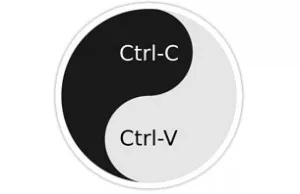
Not all of us are good at coming up with brilliant new ideas. That doesn't mean you can't become a successful entrepreneur. Be a copycat instead. Yes, imitate. There is absolutely nothing wrong with taking an idea that works in one place or within one context, and doing virtually the same exact thing somewhere else or in a different niche.A few geeks might look down on you and say you couldn't come up with your own idea. But that's stupid. I'd rather be a hugely successful entrepreneur with a non-original idea than a struggling entrepreneur with an original idea. If you want to startup, but you can't think of a new idea, just look for ideas from the West or even around you. In India we've seen many clones do well:
- Burrp was India's Yelp (until Network18 destroyed it)
- Ixigo is India's Kayak
- Mswipe is India's Square
- MakeMyTrip is India's Expedia
- Baazee was India's eBay (eBay acquired Baazee)
So How Do You Actually Find Ideas?
You can either import an idea from the west, export an idea from India, or create your own niche.
i. Import something from the West
Read the tech and entrepreneurship blogs from the West and look for promising startups. But then consider the following filters:
a) Is their product geographically specific or limited?
You only want to import an idea if your iteration actually solves a problem that is geographical in nature. There is no point in being the KISSmetrics of India because there is absolutely nothing that is geographically specific about KISSmetrics. The Google of India is Google because there are no geographic borders to information. But the Expedia of India is MakeMyTrip because Expedia didn't offer a product that worked for Indians. MakeMyTrip allowed Indians to buy domestic air tickets while Expedia didn't.
b) Are you solving a problem that also exists in India?
Would you rather be the #1 dating site in India or the #1 matrimonial site in India? You have to decide whether the startup you are copying is actually solving a problem that is worth solving in India. In the West, dating sites are huge business. In India dating sites have struggled to survive. Don't try solving a problem that doesn't exist in India.
c) Is this idea already being copied left and right?
In early 2011, thousands of Groupon clones emerged all over the world. Unless you were quick to the ground and one of the first 2-3 clones in each country, you had no chance of sustainable success. You want to avoid copy pasting the most hyped startup ideas.
Bonus Tip: Don't just look at the USA for startup ideas. Look at Europe, Asia, Africa, and South America too.
ii. Export an Indian Idea
There are many Indian startups that are solving uniquely Indian problems, right? Sort of. More likely they are solving problems that apply to many countries with a similarly low per capita GDP. Don't be afraid to take an Indian idea and export it outside India.
Here are a few potential startup ideas that could be exported (a few may have already been exported or be too late to export - but at some point you could have seriously considered exporting any of the following)
- Freecharge with it's concept of "free" recharges. This idea could potentially work in many countries where the online recharge market is nascent and pre-paid is more common than post-paid.
- Zipdial and the concept of missed call marketing. It's such an easy way to create engagement between users and brands. Why can't this work somewhere else?
- Redbus and the creation of an online bus booking aggregator. I don't think there was anything similar anywhere else in the world when they launched.
- JustDial solving local search engine via call centers and an army of local salesmen. In the absence of mass Internet usage, local search is handled via telephone call center queries and/or text message. There are many other countries besides India where Internet use is minimal and likely to take years to get to massive penetration.
iii. Create a New Niche
Hot or Not was one of the earliest social sites to go viral back in the early 2000s. The site asked users to post a photos of themselves for others to rate their attractiveness on a scale of 1-10. Users who found each other mutually attractive could also be connected with each other.
I looked at the popularity of Hot or Not in the US and decided that while the site was addicting it was most likely to be enjoyed by white people. If you were of an Indian background in the US, you probably were equally as interested by the concept but much less likely to use the site because the chances of finding a mutual pairing on a site of predominantly white people was not very high. And being Indian you wanted to know how you fared in terms of attractiveness vis a vis other Indians ranked by Indians.
I seized on the opportunity and created an Indian Hot or Not site, RateDesi. At one point we were up to 25 million pageviews per month and were making a decent amount of money. We had taken a proven idea and adapted it to fit a new niche.
Many successful businesses have been created by taking an existing business model and tweaking it to work a different niche. Etsy is Ebay for artists. Zappos was the Amazon for shoes. Zomato is the Burrp for restaurants. LinkedIn is the Facebook for your professional life.
The one caveat to this approach is you shouldn't choose a niche that is too small. An Indian Hot or Not site was not a scalable business, but I started that while I was in university and it was something I managed in my spare time. But if you are going to drain all your energy, money, and time into a startup, do at least choose a potential business where the returns on success are very large.
Final Thoughts
If there is only one thing you take away from this post it should be that there is no stigma attached to copying an existing business and finding a new home for it. It might feel like you are taking the easy way out and a few holier than though geeks might not appreciate your business, but remember ideas are a dime a dozen. It’s execution which is the differentiation factor.
Sameer if the founder of Coupondunia and he can be reached @sparwani










